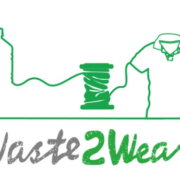What’s the deal with the Plastic Soup again?
March 15 2024 That’s what readers of news site nu.nl on their comment platform Nujij were wondering. In a recent […]
Amsterdam, August 17, 2018 – The mountain of trash that humanity produces continues to increase in size, but we’d rather look away. Kadir van Lohuizen doesn’t!
The Dutch journalist/photographer conducted research in six cities: Tokyo, New York, Jakarta, Sao Paulo, Amsterdam, and Logos. No tourist would want to visit trash dumps, but Van Lohuizen sought them out and joined the poorest waste pickers. His photos and videos are confronting, making you realize that the trash issue isn’t going to be under control as long as we keep exporting trash, and propagate the recycling of plastic as the ultimate solution. As the world’s trash production increases instead of decreases, most trash is still being dumped or burned, or it ends up in the oceans.
Van Lohuizen’s photos and videos are on display until September 23 at the exhibition Wasteland, in the north of Amsterdam. Read the elaborate (Dutch) report on the Trouw website.
March 15 2024 That’s what readers of news site nu.nl on their comment platform Nujij were wondering. In a recent […]
The first Impact Fair is Europe’s largest Impact Experience. An interactive ‘immersive’ experience of impactful examples.
The waste-export to countries outside of the EU has been restricted The Netherlands is against a carpet ban on shipping of plastic waste.
The waste-export to countries outside of the EU has been restricted The Netherlands is against a carpet ban on shipping of plastic waste.

 Waste2wear ocean plastic project
Waste2wear ocean plastic project